Field trip started at the campus of the Jagiellonian University where the academic function was described as crucial city shaping factor. The view from the roof of the building helped showing the struggles of large housing estate Ruczaj with the effects of acoustic screens. Next step was the Łagiewniki sanctuary where attendees discussed the pilgrimage function and infrastructure investment in this area. Next step was Stare Podgórze district, former independent town - supposedly the next victim of gentrification in Kraków. Attendees took a walk from Podgórze to Zabłocie. Zabłocie is a former industrial site undergoing dramatic change connected to urban redevelopment project. The final stop was Nowa Huta (initialy independent socialist town created to balance (destroy?) Kraków.
|
1 Comment
On the 5th of October 2018 National Institute for Spatial Policy and Housing together with the Institute of Geography and Spatial Management of the Jagiellonian University organized the second conference of UDI journal. Authors of 19 oral presentations (3 keynotes) and 1 poster represented 8 countries (Czech Republic, Estonia, Hungary, Poland, Republic of Serbia, South Africa, Ukraine and United Kingdom). Conference started with the opening address presented by dr Wojciech Jarczewski the head of the National Institute for Spatial Policy and Housing (publisher of the journal Urban Development Issues). Conference started with the keynote session chaired by the editor-in-chief of UDI - dr Piotr Trzepacz. Keynote presentations covered one of the most important topics in contemporary urban studies: gentrification (prof. Loretta Lees from the University of Leicester, United Kingdom) and management of urban regions in BRICS (prof. Philip Harrison from the University of the Witwatersrand in Johannesburg, South Africa). First regular session (Social development issues of cities) contained papers presented by Martin Ouředníček, Ivana Pridalova (Charles University, Czech Republic), Petra Špačková, Adam Klsak, Martin Ouředníček (Charles University, Czech Republic), Koos Balint (Hungarian Academy of Sciences, Hungary), Grzegorz Masik (University of Gdańsk, Poland), and Jacek Koj (National Institute for Spatial Policy and Housing, Poland). The second open call session (chaired by prof. Loretta Lees) begun with the keynote paper presented by prof. Nick Bailey (University of Glasgow, United Kingdom). The session was a great review of approaches towards gentrification studies. These results were presented by Daniel Štraub (Charles University, Czech Republic), Paweł Pistelok from National Institute for Spatial Policy and Housing, Poland (also on behalf of co-author Daria Wójcik from the Jagiellonian University in Krakow, Poland), Ingmar Pastak (University of Tartu, Estonia), Éva Lovra (University of Debrecen, Hungary). The third open call session (chaired by prof. Nick Bailey) was a platform for discussing spatial development issues of cities. Papers were presented by Kostynatyn Mezentsev, Olena Denysenko (Taras Shevchenko National University of Kyiv, Ukraine), Natalia Bursiewicz (Pedagogical University in Krakow, Poland), Sara Nikolić (Institute for Philosophy and Social Theory, Republic of Serbia), Oleksiy Gnatiuk, Anatolii Melnychuk (Taras Shevchenko National University of Kyiv, Ukraine). Fourth session (chaired by Agata Warchalska-Troll, managing editor of UDI) contained papers closer to economic development issues (from the perspective of small towns: Gábor Pirisi and Éva Máté both from the University of Pécs, Hungary) and transportation - by Agnieszka Świgost (Jagiellonian University in Krakow, Poland).
|

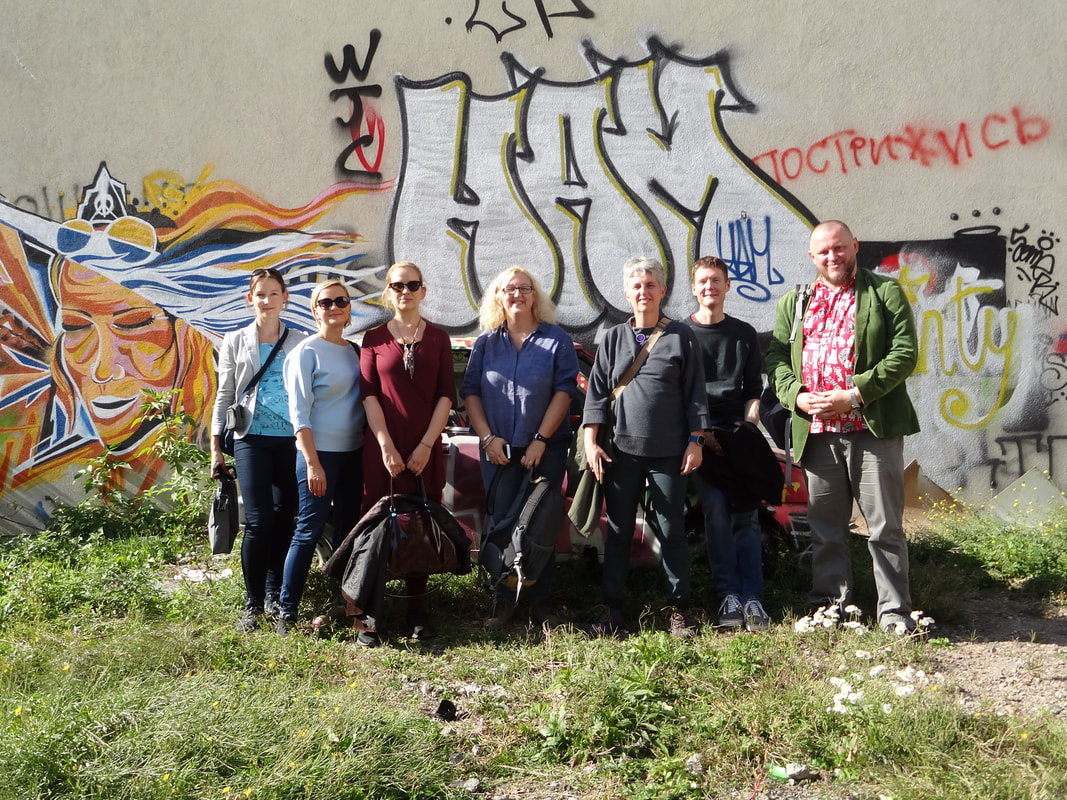
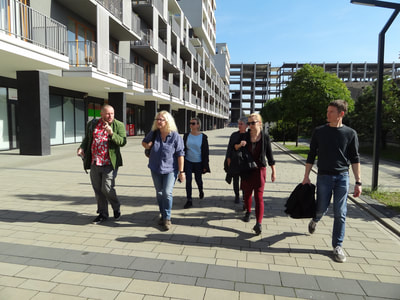
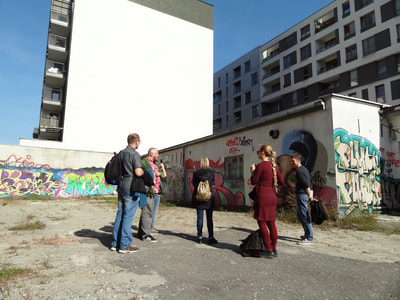
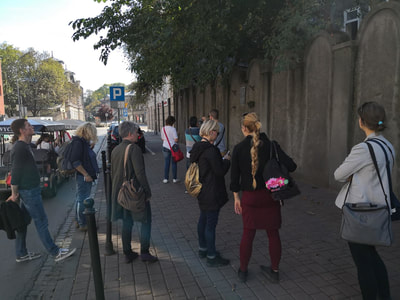
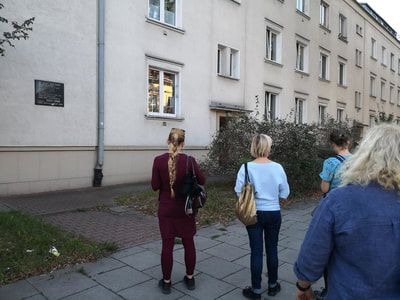
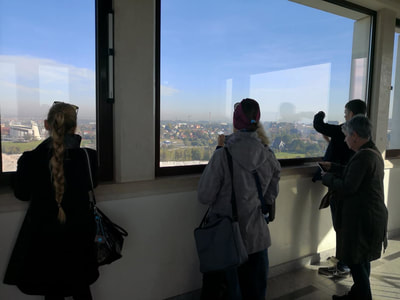
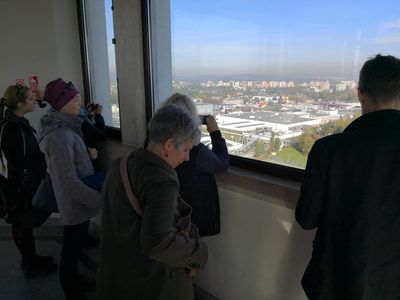
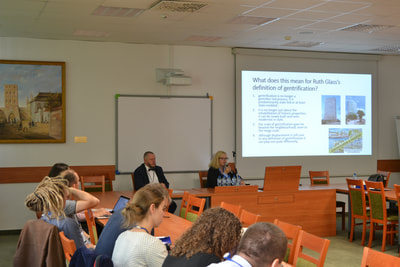
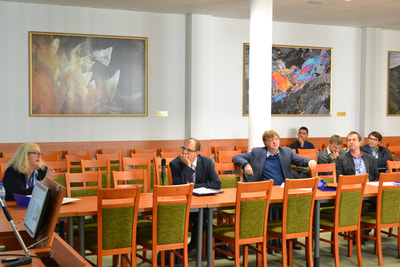
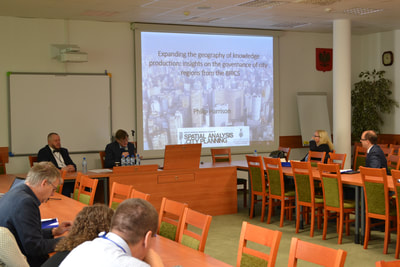
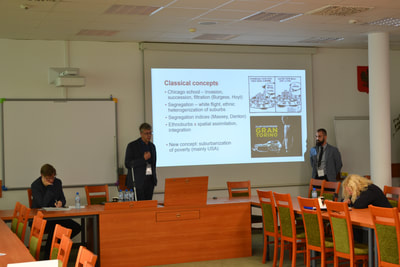
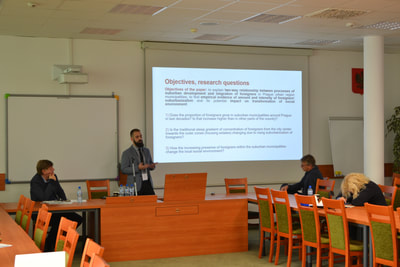
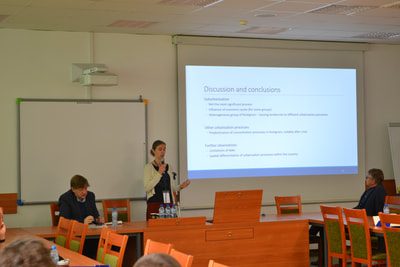
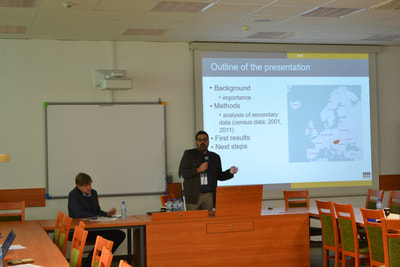
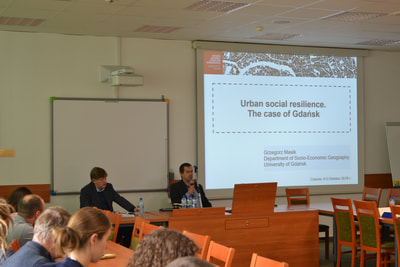
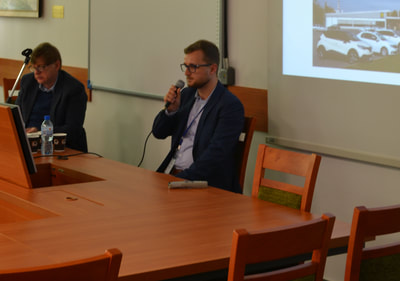
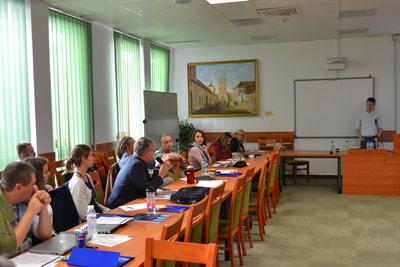
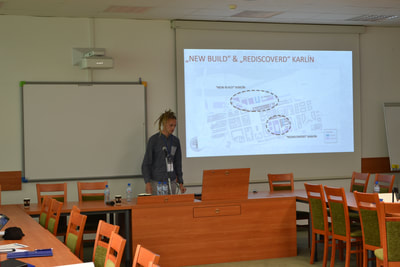
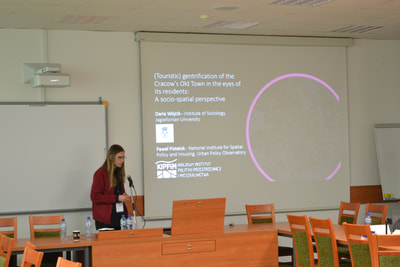
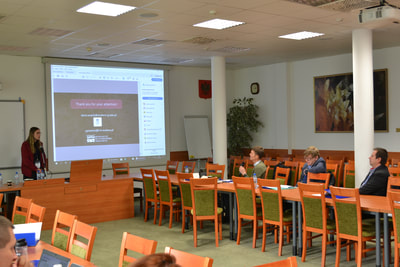
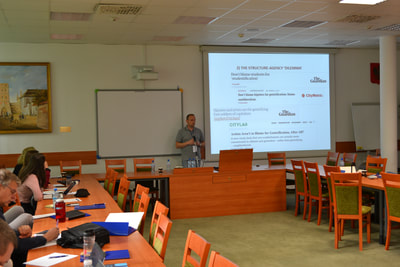
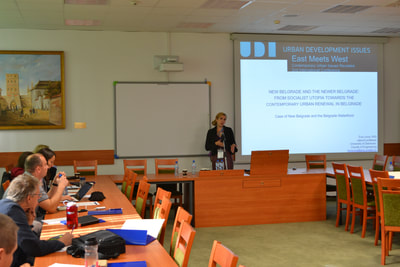
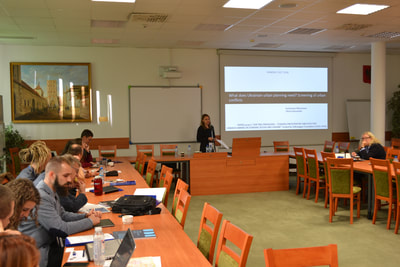
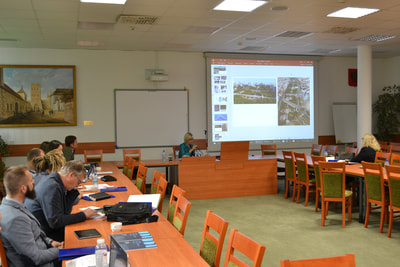
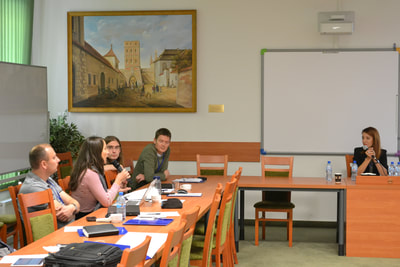

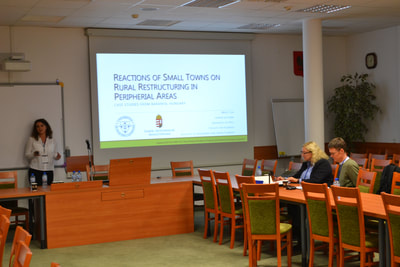
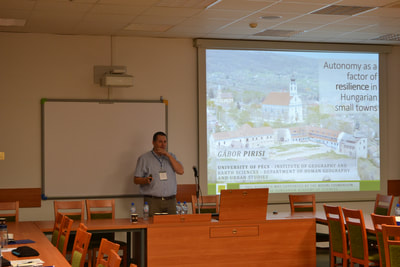
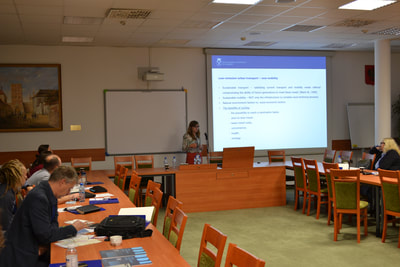
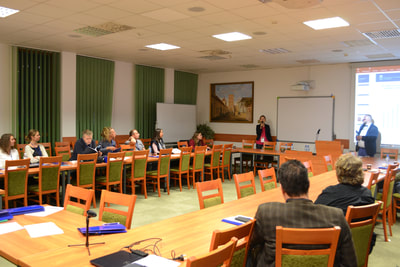
 Kanał RSS
Kanał RSS